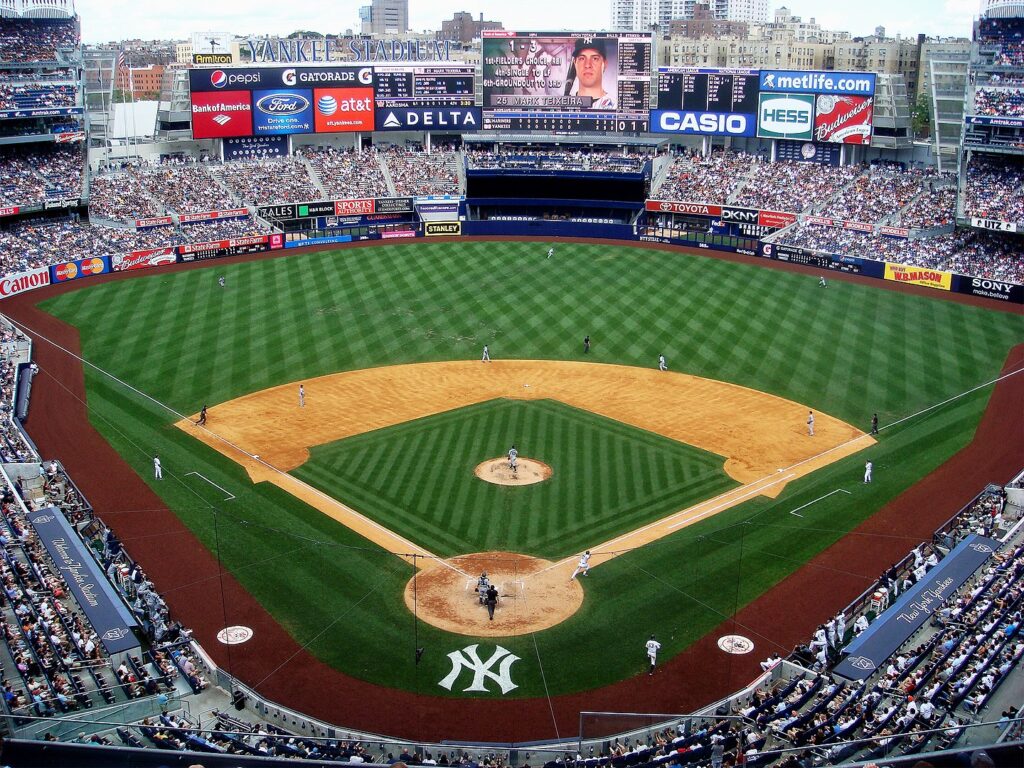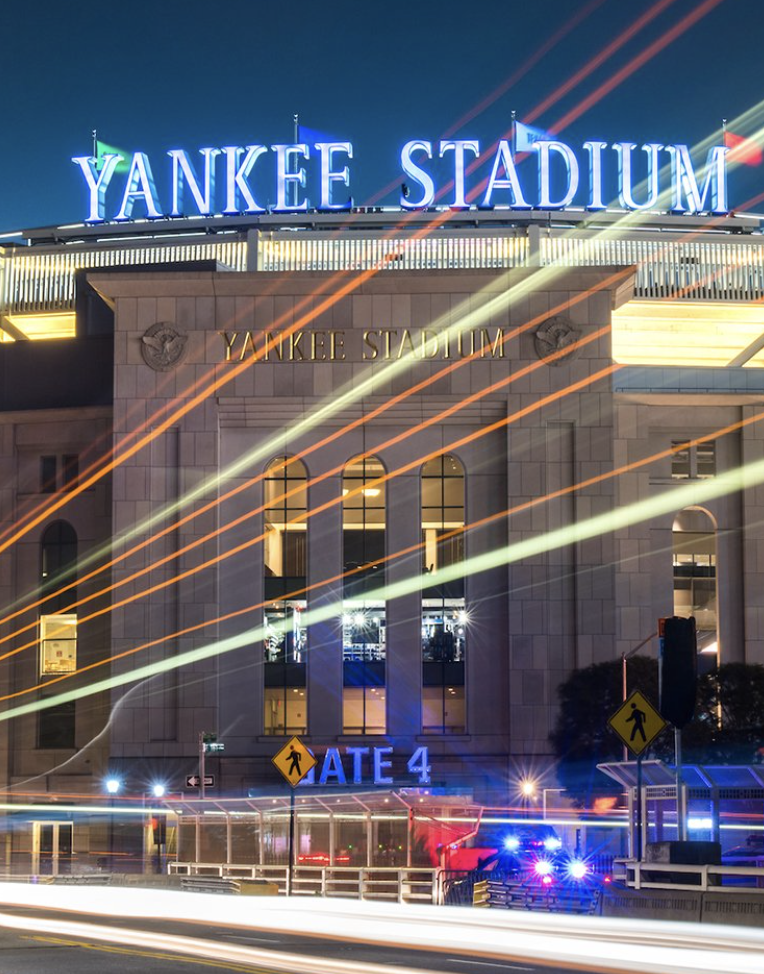Yankee Stadium is home to the winningest franchise in baseball, a rabid fan base, and a secret elevator.
Well, maybe it’s not exactly a secret, but very few people know where it is. When the building was being designed, they built this elevator to only access a very small part of the stadium that can’t be reached any other way. Even those who might have seen it once by chance (it’s not really in a place many people walk through) likely have no idea where it goes and only a handful of people are allowed to use it.
Even if you were somehow able to find this secret elevator and use it to get to the secluded location, you’d be met with a door that can only be opened using both halves of a pair of two corresponding keys. Only one of the two keys belongs to the New York Yankees.
This isn’t some top-secret office for the owner. Nor is it some clandestine operation by the team’s analytics department. It’s not even something like the central security hub or the location of a vault.
It’s the kosher kitchen.
The story of how this kitchen came about is fairly simple. Yankee Stadium has always needed a greater kosher component than virtually every other sports stadium on the planet (perhaps everywhere outside of Israel). Baseball brings 80+ home games a season (although some of those games can’t be attended by kosher-observant Jews or the mashgichim employed at the stadium), spanning half the calendar year.
With a capacity of over 46,000 in a metropolitan area that features such a large kosher-keeping population, kosher food in the ballpark is a necessity. Unlike the New York Mets’ home at Citi Field, Yankee Stadium isn’t surrounded by kosher options where fans can grab a bite to eat before the game or bring something with them to the ballpark. Given those circumstances, the Yankees decided to set up what is still an unprecedented operation when it comes to kosher food at a sporting venue.
When it opened in 2009 after three years and $2.3 billion of construction, the newer Yankee Stadium had a kosher kitchen built into it. The idea was that with the new stadium’s multiple premium seating options, something should be available for the kosher consumer as well. After switching hands a few times, the Star-K now provides the certification for the kitchen.
Legends Hospitality operates many things in Yankee Stadium including the food services. The Yankees are a partner in the ownership, but Legends is actually a brand that provides services to stadiums all over the world. Though you shouldn’t expect to go to their other stadiums and find kosher kitchens.
The only way the operation works is through a partnership. Luckily, the Star-K and Legends have been able to create a bond that yields an unmatched product as far as stadium kosher food goes. Given that Legends itself isn’t a kosher operation, the functionality of the arrangement is quite an accomplishment.
Chef Matt Gibson has been at Yankee Stadium for 12 years now and is the senior executive chef. He knows a lot about kashrus now, but that wasn’t always the case.
“To be honest, I didn’t know much more than the basics,” Gibson said. “I have enjoyed learning more about kosher food and religion over the years.”
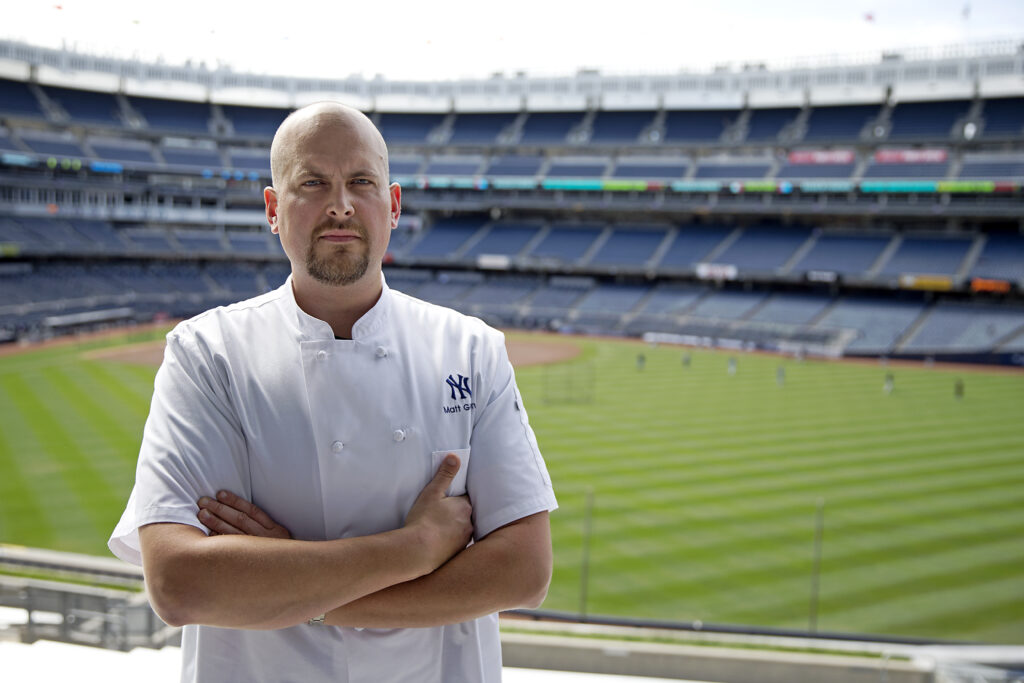
But after more than a decade, the partnership is in a great place and things are running more smoothly than ever.
“After so many years working closely with Chef Matt Gibson and Legends, they have gotten to the other side of the learning curve,” said Rabbi Binyomin Steinmetz of the Star-K. “They are very well-versed in the challenges, rules, regulations, and policies, and they are ready, willing, and able to abide by everything. The kashrus aspect is respected by the whole culinary staff and the cooperation is what makes everything work.”
Speaking of the staff, one of the most important factors in their success is that the kitchen staff for the kosher kitchen works exclusively there. They don’t rotate to other kitchens in the stadium. It’s much easier to have a staff that knows everything about kashrus when that staff stays the same. They know that they can’t bring in outside food for lunch, to only take vegetables from the bins that indicate they’ve already been checked for bugs and that nothing leaves the kitchen without a mashgiach sealing it with the stickers and tape that mark things as kosher.
“(Rabbi Steinmetz) has been a great teacher. He is very informative, compassionate, and takes the time to make sure everyone understands the procedures set in place to maintain the highest kosher standards,” said Gibson. “I am lucky enough to call him a mentor, a colleague, and, most importantly, a friend.”
The kosher kitchen cooks for about 700 people per night. Sometimes that’s too much, and sometimes they are pumping out more during the game to catch up with demand. The menu offerings for the actual Legends Suite Club kosher action station change daily to a certain extent and everything is getting made fresh daily except the pastries for dessert.
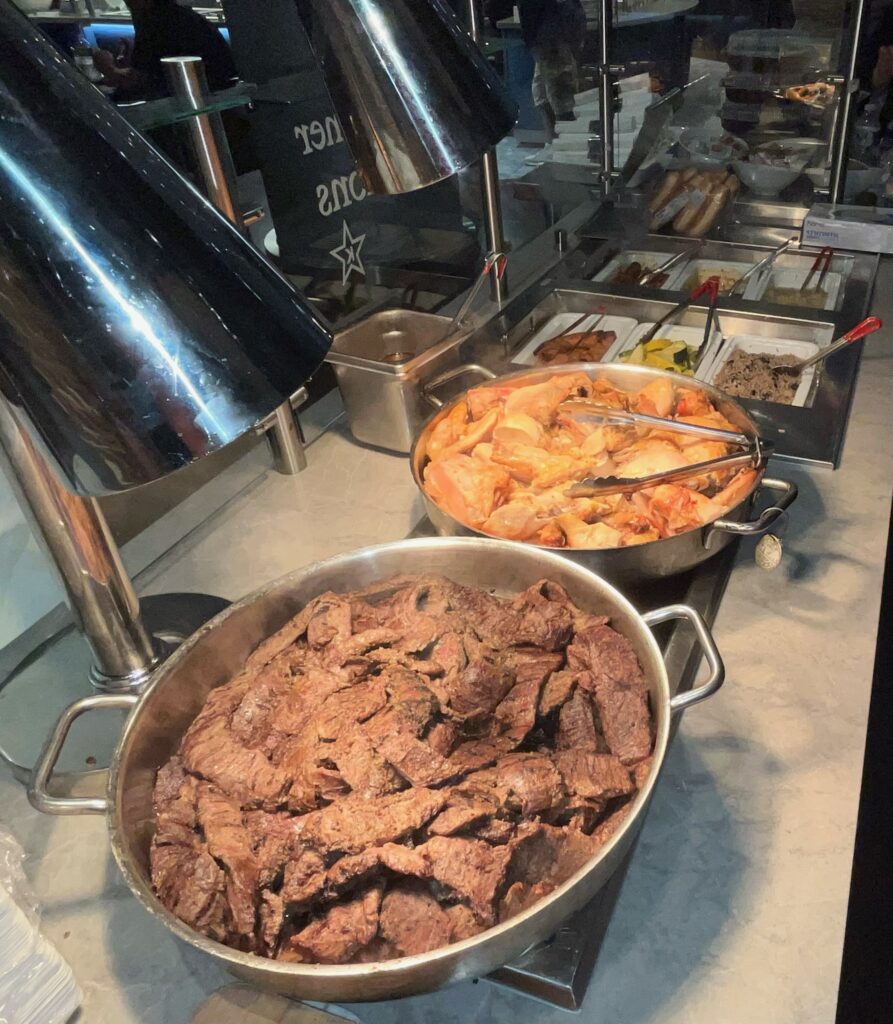
That food has to be shipped out to various locations in the stadium so that it’s available in a timely fashion. One of the difficulties is the size of the venue. Some locations that require kosher food are nowhere near others. Not only that, but the food has to be escorted there by a mashgiach.
“If we are working hand-in-hand that challenge is met,” Rabbi Steinmetz said. “We have a team of five mashgichim who are dedicated to working at the stadium. All equipment is very distinctly marked and movement throughout the stadium is very closely controlled with mashgichim accompanying any food. As large as the stadium is, we manage to have a very restricted system with a clear flow.”
And while that system for your average game is mostly perfected at this point, they don’t stop there. The kitchen is also able to accommodate very special circumstances as well. There were two games during the Nine Days this year. With most patrons who keep kosher abstaining from meat, the menus were tweaked to include fish (both cooked and raw) and even plant-based chicken nuggets for the lower-tier offerings.
The kitchen even has china in case that they need to cater an event that requires it. You could host a bar mitzvah for 500 people at the stadium during the off-season and they could accommodate the request. Even if it’s something they haven’t done before, reach out and ask. They appreciate a challenge.
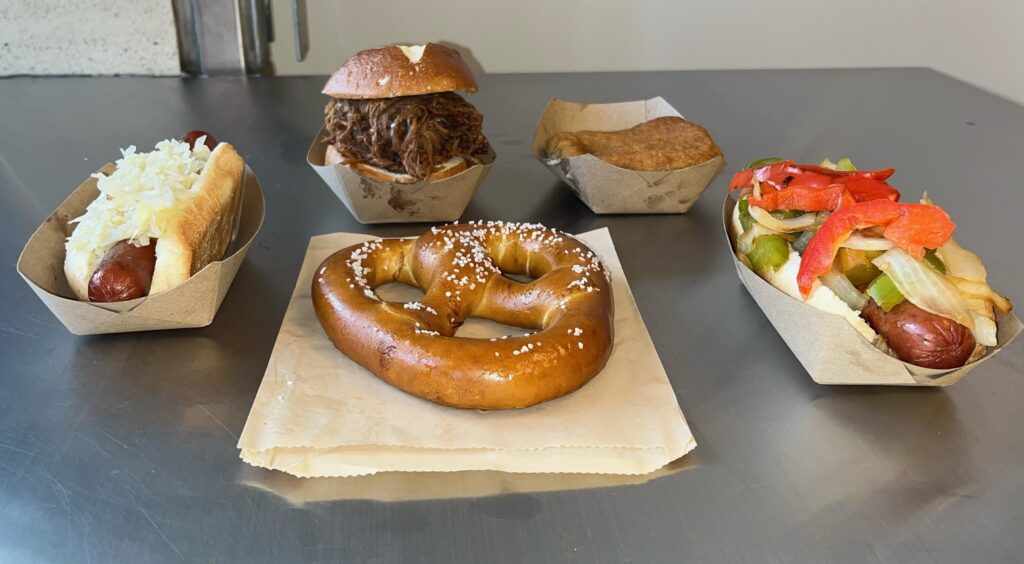
There are many places in the stadium where you can order kosher food. For most people, that’s probably limited to the kosher stands available on the concourses. But even that isn’t quite as limited as it was before.
This season, Prime Kosher Sports (PKS) took over the kosher vending at Yankee Stadium. PKS operates the kosher stands at four other sporting venues and they clearly know their stuff. They upgraded the offerings available at the stands in all four of the locations in the stadium (sections 112, 214, 229, 323). The menu now includes pulled barbeque brisket on a pretzel bun, deli wraps, sausages with peppers and onions, hot dogs, knishes, and soft pretzels.
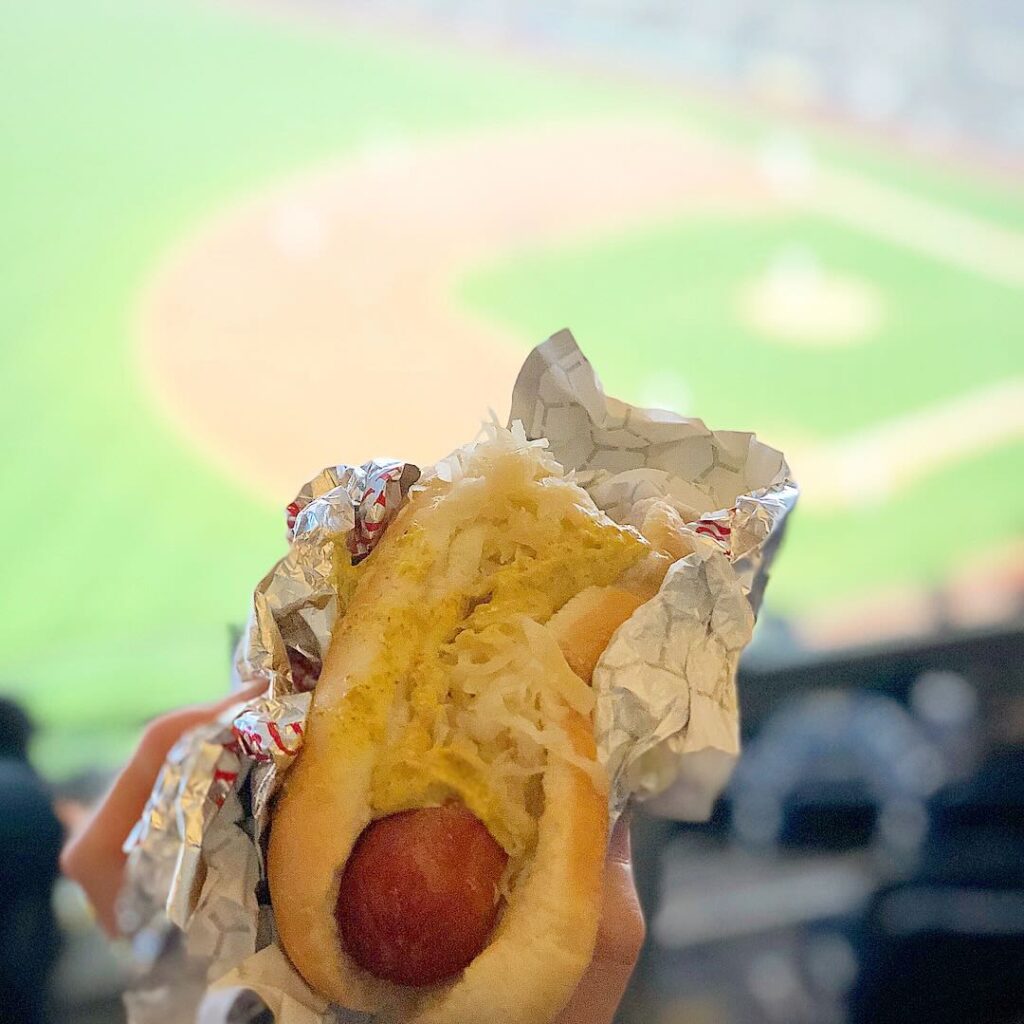
“Managing four stands is great,” said Eli Arje of PKS. “Our experience with other venues has made it smooth to operate.”
They even had a custom grill built for the main stand in section 112. The new setup allows them to make a better product than the previous system where the hot dogs were boiled. PKS hopes to have all the other stands converted by next year as well.
“Servicing the best fans and the best community means having the best equipment to make the best product,” Arje said of the recent upgrades. “The feedback we’ve received has been heartwarming.”
One more way that PKS serves the fans is by hosting minyan during the seventh inning stretch of every game. It’s mincha for day games and ma’ariv for night games. This takes place right across from the stand in section 112, though sometimes there are minyans at the other stands if there are enough people around.
>>> Continue reading

